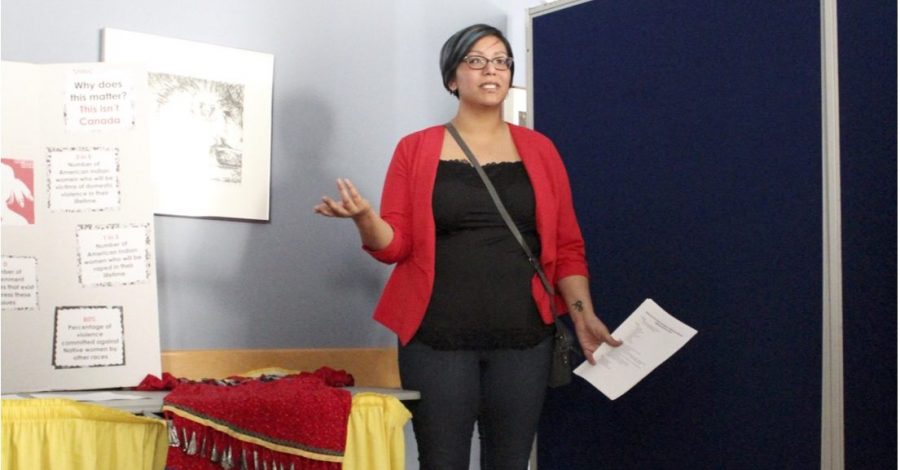Last Wednesday the Multicultural Center hosted the annual Tunnel of Oppression exhibit with help from five student organizations at South Dakota State University.
The five organizations involved were: Feminist Equality Movement, Latin American Student Association, Black Student Alliance, Residential Life and American Indian Student Center.
The Tunnel of Oppression is an interactive exhibit that brings attention to the different issues of oppression in society today, such as the lack of equal pay between men and women, discrimination and racism.
Program adviser for African American Programs Kas Williams has been organizing the national event at SDSU since it began more than four years go.
“Students get tired of us lecturing what is right and wrong and this is something different,” Williams said. “The tunnel is uncomfortable and it’s meant to be uncomfortable.”
The expo included five stations dealing with issues including: police brutality, missing and murdered indigenous women and offensive messages on social media.
Each organization set up its own booth and demonstrated issues related to the oppression the minorities they represent face.
The Feminist Equality Movement spoke about the wage gap between men, women and minorities. The American Indian Student Center informed people about missing and murdered indigenous women.
The Latin American Student Association did a skit related to people being bystanders of an argument between two students about minorities not speaking English in the U.S.
“The station where they started speaking Spanish and someone in our group starting arguing stuck out to me because I wasn’t sure if it was real and we had to say something,” said senior pharmacy major Shelby Retzer.
The Black Student Alliance booth informed people about police brutality and different high profile cases.
“We try to do something that, when students and faculty come in, it makes them feel uncomfortable but it makes them understand what we go through each and everyday,” said Akeah Aschmeller, sophomore pre-mortuary science and psychology major and BSA vice president.
Aschmeller, along with other members of BSA, focused the station on police brutality and the protest by NFL player Colin Kaepernick in 2016.
People were asked to read offensive tweets sent to Kaepernick after he took a knee in protest against police brutality during the national anthem.
Aschmeller helped organize the exhibit and told attendees it was OK to read the tweets a loud, but a woman was brought to tears and she refused to say a racial slur about African Americans.
“When she started crying that was kind of eye-opening for me because I’ve never seen someone react that way during this event,” Aschmeller said.
Like BSA’s station, Residential Life’s station showed different offensive tweets and also displayed offensive pictures, text messages and posts from students at SDSU, USD and other universities.
Freshman biochemistry major Susan Grabenstein was surprised when she noticed a post making fun of people with service animals was from SDSU.
The Multicultural Center does the Tunnel of Oppression every year and can offer students a new perspective and understanding of the oppression minority groups face every day.
“Next year, just come out and see the tunnel … this is an opportunity to share some of these groups’ experiences and become exposed and aware of these different cultures,” Williams said. “It’ll be uncomfortable, it’s OK and you’ll survive.”

























